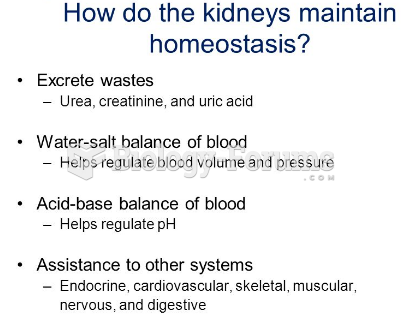Answer to Question 1
Neurons vary in their structure, but almost all neurons have four basic parts. These include a soma (cell body), dendrites, an axon, and terminal buttons. The soma contains the nucleus of the cell (the center portion that performs metabolic and reproductive functions for the cell). It is responsible for the life of the neuron and connects the dendrites to the axon. The dendrites are branchlike structures that receive information from other neurons, and the soma integrates the information. Learning is associated with the formation of new neuronal connections. The axon is a long, thin tube that extends (and sometimes splits) from the soma and responds to the information, when appropriate, by transmitting an electrochemical signal, which travels to the terminus (end), where the signal can be transmitted to other neurons. The terminal buttons are small knobs found at the ends of the branches of an axon that do not directly touch the dendrites of the next neuron. Rather, there is a small gap, the synapse. The synapse serves as a juncture between the terminal buttons of one or more neurons and the dendrites (or sometimes the soma) of one or more other neurons.
Answer to Question 2
Acetylcholine is associated with memory functions, and the loss of acetylcholine through Alzheimer's disease has been linked to impaired memory functioning in Alzheimer's patients. Acetylcholine also plays an important role in sleep and arousal. When someone awakens, there is an increase in the activity of so called cholinergic neurons in the basal forebrain and the brainstem.
Dopamine is associated with attention, learning, and movement coordination. Dopamine also is involved in motivational processes, such as reward and reinforcement. Schizophrenics show high levels of dopamine. This fact has led to the dopamine theory of schizophrenia, which suggests that high levels of dopamine may be partially responsible for schizophrenic conditions. Drugs used to combat schizophrenia often inhibit dopamine activity. In contrast, patients with Parkinson's disease show low dopamine levels, which leads to the typical trembling and movement problems associated with Parkinson's. When patients receive medication that increases their dopamine level, they (as well as healthy people who receive dopamine) sometimes show an increase in pathological gambling. Gambling is a compulsive disorder that results from impaired impulse control. When dopamine treatment is suspended, these patients no longer exhibit this behavior. These findings support the role of dopamine in motivational processes and impulse control.
Serotonin plays an important role in eating behavior and body-weight regulation. High serotonin levels play a role in some types of anorexia. Specifically, serotonin seems to play a role in the types of anorexia resulting from illness or treatment of illness. For example, patients suffering from cancer or undergoing dialysis often experience a severe loss of appetite. This loss of appetite is related, in both cases, to high serotonin levels. Serotonin is also involved in aggression and regulation of impulsivity. Drugs that block serotonin tend to result in an increase in aggressive behavior.







